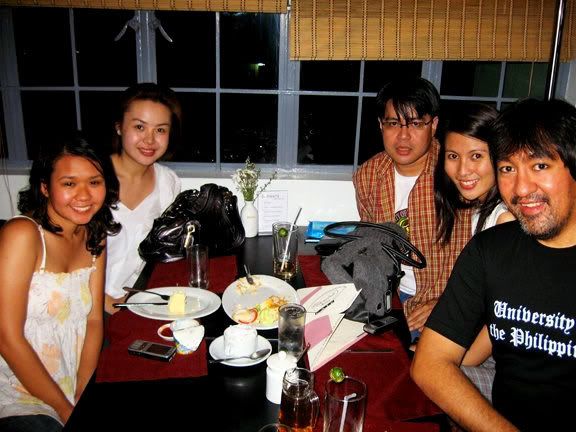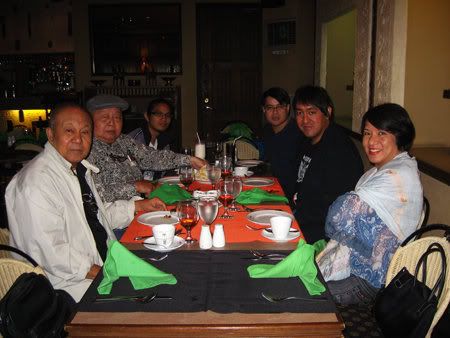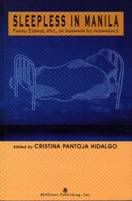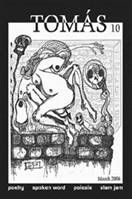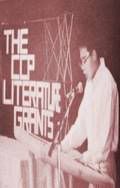For decades, the Philippine Islands have stood in for war-torn Southeast Asia in American-produced movies (most famously and spectacularly in Francis Ford Coppola's "Apocalypse Now"), as well as real and fictional Latin American and African dictatorships, contested World War II strategic real estate, and nearly anywhere else an American-financed film script has called for palm trees, rice paddies, or cane fields.
In addition to playing host to foreign productions, the Philippine film industry has regularly released homegrown productions into theaters alongside dubbed American films such as "I Now Pronounce You Chuck and Larry" that ring up the lion's share of local ticket sales in Manila. But with few exceptions, American audiences rarely get to see them.
Beginning tomorrow, the Museum of Modern Art, in association with the Global Film Initiative, a Bay Area group that supports feature film projects that would otherwise go unmade or unreleased in the American-dominated world film exhibition market, will kick off GFI's annual touring "Global Lens" film survey with a week-long engagement of "Kubrador" ("The Bet Collector"). The 2006 film was written and directed by the Philippine filmmaker Jeffrey Jeturian and shot on the streets of Manila.
"Kubrador" is a handheld, digital video slice-of-life bearing a formal resemblance to Nicolas Winding Refn's 1996 gritty festival favorite "The Pusher," and any number of other low-budget, smash-and-grab dramas mixing actors and non-actors in real locations. A naturalistic cobbling of incident and detail, "Kubrador" portrays three days in the life of Amy (Gina Pareño), one of the thousands of anonymous touts working on behalf of Jueteng, an outlawed yet thriving underground lottery whose enormous invisible economy and profit potential attract and enslave criminals, bettors, police, and politicians alike. When not energetically hustling bets, accosting her regulars, suggesting numbers, and wheedling bigger antes per bet, Amy collects donations to offset funeral expenses from the endless parade of tragic deaths that Manila street life ensures. Her existence is almost entirely defined, as a bemused friend observes, by "Jueteng and dead people."
Mr. Jeturian's alternately oblique and intrusive camera is itself quite the hustler. But his jostle-cam immediacy is lent unusual gravity by Ms. Pareño, whose presence in this fascinating, funny, and at times heart-wrenching film makes "Kubrador" something of a torch bearer for the last four decades of Philippine cinema. For nearly half a century, Ms. Pareño has been a mainstay on her country's screens. Now in her 50s, the former bombshell (one of a string of actresses who portrayed native superheroine Darna onscreen in the '60s and '70s) has grown matronly, and her increased girth plays counterpoint to the unflagging intensity with which Amy alternately delivers sales spiels, crass observations, or motherly compassion from behind a ubiquitous dangling cigarette. Her remarkable performance elevates "Kubrador" to a film-going experience that is paradoxically fun and affirming, despite the inevitable onscreen downward spiral guaranteed by a life of offering little more than "grief and death," as Amy philosophizes between puffs.
While this fifth annual edition of Global Lens features eight films made by emerging filmmakers from as far afield as Croatia, Lebanon, and Argentina, MoMA will bring down the curtain on its survey with another week-long engagement of a film from the Pacific Rim. In place of the vérité economy of expression behind "Kubrador," Indonesian director Garin Nugroho's 2006 film "Opera Jawa" (running from January 16–21) offers an explosion of symbolism, surrealism, and spectacle that must be seen to be believed. The film's source material, an ancient Hindu fable called "The Abduction of Sinta," has been interpreted in Javanese dance and puppet theater for centuries. "Opera Jawa," which was commissioned by Peter Sellars in 2005 as part of his New Crowned Hope Festival commemoration of Mozart's 250th birthday, sees Mr. Nugroho give an indigenous folktale the Matthew Barney treatment.
A love triangle involving Sinta (Artika Sari Devi), her potter husband, Setio (Martinus Miroto), and local butcher hoodlum Ludiro (dancer Eko Supriyanto, who can list work with Julie Taymor and Madonna among his credits) forms the basis for a series of muscular and confrontational seductions and confessions, all sung and danced against real landscapes and interiors dressed and shot with an ingenious eye for the theatrically bizarre. "Nini Thowak, the magic puppet, gives a massage," sings a witness-bearing choir at one point. Whether or not "massage" is a subtitle typo is impossible to sort out as fingers caress, toes curl, and the film's deadly earnest and none too coherent storyline vanishes behind decorative tableaux of exponentially increasing non-specific and nevertheless evocative nuttiness.
"A bird, like a bird, not a bird," the ladies of the chorus opaquely recite. They could very well be singing about "Opera Jawa," a movie musical that's like a stage musical, and yet not really quite like anything else, and a film whose unique regional creative voice would remain silent were it not for production grants and distribution efforts undertaken by the Global Film Initiative.
MoMA's Global Lens program continues through January 24 (11 W. 53rd St., between Fifth and Sixth avenues, 212-708-9400).







